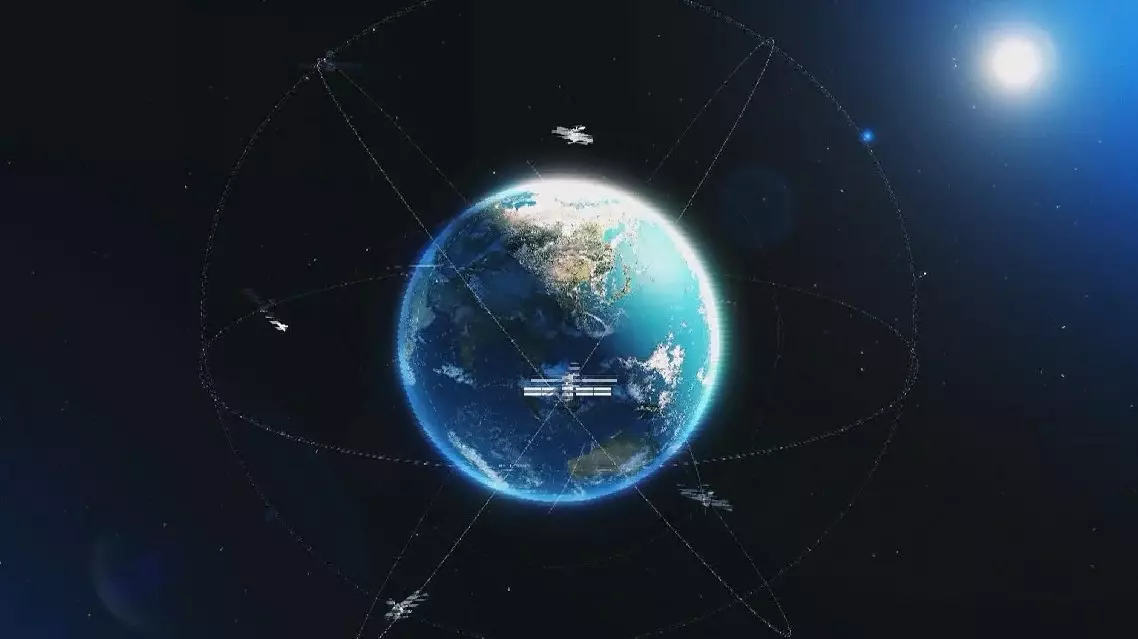China will optimize the constellation structure of its BeiDou Navigation Satellite System by deploying satellites in high, medium, and low Earth orbits to offer more precise and faster positioning services, according to a plan released by the China Satellite Navigation Office on Thursday.
BeiDou will comprehensively improve its accuracy as a space-time reference system and autonomous operation capabilities, according to the plan released at a symposium held in Beijing to mark the 30th anniversary of the construction of the BeiDou system.
"In terms of constellation structure, we all know that China's BeiDou system has an innovative mixed configuration of medium and high orbit satellites. The next-generation national space-time system will also include low orbit satellites. This means that the existing BeiDou satellites in high and medium Earth orbits will serve as the core, incorporating some special functions of the low orbit satellites. The current technical research results of low orbit navigation satellites show that they converge more quickly, which means they can provide faster positioning services for users," said Xie Jun, deputy chief designer of the BeiDou system.
The Chinese-developed BeiDou Navigation Satellite System (BDS) was initiated in 1994. The construction of BDS-1 and BDS-2 was completed in 2000 and 2012, respectively. When BDS-3 was put into service on July 31, 2020, China became the third country to have an independent global navigation satellite system.
Over the past two years, China has launched five additional BeiDou satellites, completing the construction of BDS-3.
Currently, the BeiDou system has stable operation, excellent performances, and strong functions enabling it to meet the diverse needs of users, according to Yang Changfeng, chief designer of the system.
"The accuracy of the BeiDou navigation system is steadily increasing. The current seven functions have become stronger. For example, we provide global services such as navigation, positioning, international search and rescue, and global short message. We also provide regional services for the Asia-Pacific, such as satellite-based augmentation, accurate single-point positioning, and ground-based augmentation. The performance of the system is stable, enabling us to meet the needs of our users," Yang said.
According to the plan, three experimental satellites of this navigation system are scheduled for launch around 2027, while network deployment will begin by about 2029 and will be completed by 2035.
The system will also feature an integrated and efficient ground infrastructure, ensuring flexible resource allocation, data sharing and uninterrupted operations.
The next-generation BeiDou system will deliver real-time, highly accurate navigation, positioning and timing with precision levels ranging from meters to decimeters.
After years of development, the BeiDou system has been extensively applied in new infrastructure construction, covering transportation, energy, agriculture, communications, meteorology, natural resources, ecological protection, disaster prevention and mitigation, and many other fields, seeing fruitful results and a promising prospect in mass consumption.
"The areas where we have great influence on people's daily life are intelligent transportation, including the control of intelligent logistics and shared bicycles, and fully automatic harvesting and plowing in intelligent agriculture. The application of BeiDou has brought huge benefits to all these areas. And the list goes on. Our accurate timing has enabled better applications," Yang said.
The BDS services and related products have been exported to more than 130 countries, providing users with diversified choices and better application experience, and promoting industrial development, according to a bluebook released in October.
"We are one of the four major satellite navigation and positioning service providers for the United Nations. More than 100 countries are using our satellite navigation system. As our system is more accurate and convenient, I think it will play a better role in global satellite navigation in the future," he said.

China to optimize BeiDou navigation system's constellation structure









